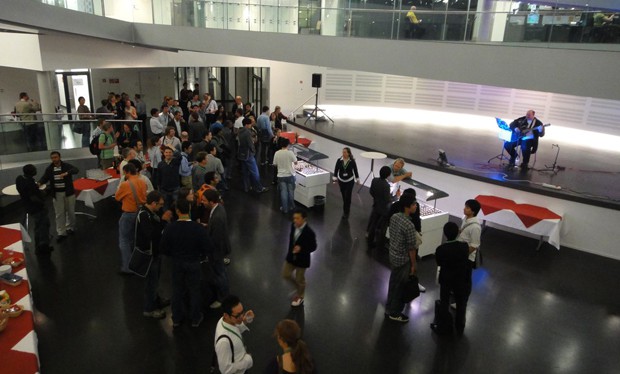
Following your feedback, for 2015 we are rolling out some new features at lifescience.net.
In January 2014 we launched our post-publication review of research publications. As we spoke to members of our network and visitors of lifescience.net platform, some suggestions for new features came up. One of the suggestions was to enable review of research institutions and research groups, which would make it easier for young scientists to decide where to apply for their PhD and postdoctoral studies. To address this need, we just launched node reviews.
Node reviews
“Node” in our network is any organisation, institute, university, company, department or a research group. These nodes are arranged hierarchically (for an example see Ruhr University Bochum). So when we say node review, we mean review of an institute, department, research group etc.
Similar to publications, there are different review features you can use:
- anonymous and non-anonymous commenting,
- recommendations,
- anonymous rating in three different categories,
- non-anonymous review – a combination of text and numerical ratings.
However, we still haven't decided what the three rating categories should be. For this, we would like to hear your thoughts. If you would be rating an institute or a research group, what categories would you think would be best suited? For instance, for publications we call these categories Publication quality, Technical soundness and Scientific impact. The tricky bit is, the three categories should work for all nodes and make sense for institutes, universities, departments or research groups. Let us know what you think by commenting below, or send as an email.
As soon as the categories are defined, you can start posting reviews and ratings and evaluating the groups and institutes where you work or have worked in the past.
Poster and presentation abstracts
The second suggestion we received was not to build a feature, but a complete new application that would make it easy for scientists to organize events. We liked this idea, especially the fact that when integrated with some social networking features, it would create a much better experience for meeting participants. The event online would become a virtual meeting place where communication and exchange can begin even before the actual event starts and continue after it finishes.
So we gave this idea a serious thought, but following a bit of market research, decided not to try to build such an application. The reason is that there already are companies providing digital infrastructure that helps major event organizers with organization. After a brief discussion with one of the major event organizers in life sciences, it became clear to us they won't replace their existing partners with someone new in the market, just for the benefit of social networking features. So if we can't count on big organizers to use our tools, we might be left with individual scientists who sporadically organize meetings. The number of such events would probably be too small to make the whole project viable within the time frame that would be acceptable for us.
Instead, since we already have the Events module integrated into the lifescience.net platform, we thought we could add some features here to see if scientists are going to use them. Up to now, anyone could post information about the event they are organizing, including seminars, and scientists could “follow” places, such as institutes or entire cities or countries to get notified about events taking place there.
Now, it is also possible for event participants to upload abstracts of their posters and presentations including the files. The paper abstract books can now be replaced with digital entries, which offers several advantages:
- they are searchable,
- you can bookmark your favorite abstracts,
- abstracts can be recommended (perhaps a nice way to give away poster awards, based on the recommendation scores based on opinion of all event participants),
- abstracts can be commented etc.
This module is now online and you can start using it. If you are attending an event, you can upload your abstract. If you are organizing an event, you can ask your participants to do that. Alternatively, you can also send us a .csv file with abstracts and we can import it into our database (see example file below). Although choosing the latter option means the poster and presentation files would not be uploaded, at least abstracts would be available.
Check these new features and let us know what you think. Also, send us your feedback about new features and tools you think should be developed. And don't forget to share with us your thoughts about the node review categories mentioned above. We need to define them before you can start submitting your ratings.
Cover image: People at a conference.
Stats
- Recommendations +2 100% positive of 2 vote(s)
- Views 2336
- Comments 0
Recommended
-

Aleksander Benjak
Scientific Officer | NCCR Molecular Systems Engineering, University of Basel
Also:
- Web Developer | Science HR
- Web Developer | Science Simplified
- Co-Founder and Web Developer | Life Science Network gGmbH
-

Alen Piljić
Managing director | Life Science Network gGmbH
Also:
- President | Research Elements Association